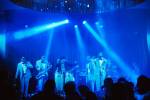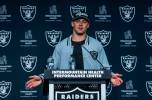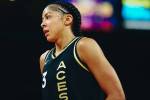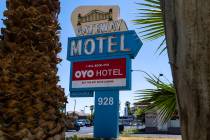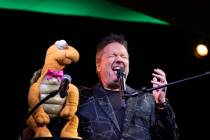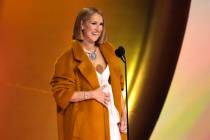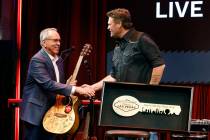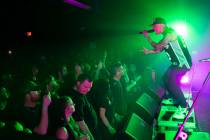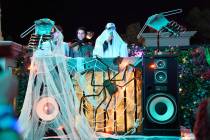Agnosticism presupposes a healthy dose of healthy skepticism
As a retired newspaper typesetter now living in Henderson, i’d like to comment on your Sunday (Aug. 21) article. I enjoy reading your topics on the various subjects you write. Your theme about cynicism and skepticism really caught my interest and made me wonder, as an agnostic, if by your definition that means i am also a full-blown cynic.
It is by coincidence that i have just finished reading the book written by Vincent Bugliosi, the famed attorney in Los Angeles, titled "Divinity of Doubt — The God Question." This book has confirmed my beliefs regarding religion and the scriptures in the Bible. I couldn’t help wondering, what is your take on this?
B.W., HENDERSON
Let me begin on a personal note: I admire your question. It made me smile. Thank you for joining this dialogue.
I am convinced that agnosticism and cynicism are independent variables. In other words, no, you’re not (necessarily) a full-blown cynic. That is, if you are a full-blown cynic, it would have nothing to do, per se, with being an agnostic. My definition, as you say, of "cynicism" in no way presupposes agnosticism. And for the record, the definition of cynicism I cited in the earlier column wasn’t mine; it was the Oxford English Dictionary’s definition.
Atheists, agnostics and theists might all be cynics, each for his or her own reasons. Again, on a personal note, I happen to be a theist who regularly must stare down the temptation to be cynical, even bitterly cynical about modern institutional religion. When I’m feeling centered and objective, I’m smart enough to know there are tons of religious folks wielding their theological worldview with absolute sincerity, keen integrity and emotional honesty, not to mention that their work in the world is self-evidently useful, healing and holy. When I’m feeling surly and I fall into the memories of injustices I’ve experienced or witnessed by less sincere, less honest and less self-aware religious folks … well, the temptation to paint with a broad, cynical brush is damn hard to resist.
My values — both moral and academic — expect more of me than that.
What agnosticism does presuppose is a healthy dose of healthy skepticism. I say "healthy skepticism." If you recall in my column, I went to great pains to distinguish between skepticism as a crucial and necessary tool in the search for truth and learning and skepticism wielded as pseudo-intelligence. Skepticism as a disguise for both ego and intellectual irresponsibility. Laziness. Moral shallowness.
But, back to agnosticism and the healthy skepticism it contains …
I would not ultimately trust a religious person who never doubted. That’s because I’m convinced doubt is a crucial part of authentic relationship and any real intimacy. Take marriage as an example: What makes fidelity meaningful is precisely that your mate doesn’t have to be faithful. He/she can choose not to be. It isn’t possible to give your whole heart to someone and not also, regularly wrestle with insecurity — aka, doubt. Saying "I do" is a phenomenal risk. An abject vulnerability. Great love affairs, over a lifetime, must include cycles of … well, you might say a "marital agnosticism."
Presbyterian author Frederick Buechner says it this way: "Doubt is the ‘ants in the pants’ of faith; it keeps it awake and moving."
I’m saying all authentic journeys with God include doubt and times of agnosticism. If, by definition, it’s not possible for you to allow anything — any experience or any idea — to count against the possibility of God or even the goodness of God, I would wonder how deep the meaning of postulating God at all.
I think that’s why I respect Hebrew theology so much. What else is the story of Job, the Book of Ecclesiastes, Jacob wrestling with God (Genesis), the Book of Lamentations and the Wailing Wall if not a codifying of doubt/agnosticism as part and parcel of the journey of faith?
And, in the Christian story, the disciple Thomas is showcased as the walking, talking icon of doubt. And, when finally confronted by Jesus, Thomas is not criticized for his doubt. Jesus is in no way personally offended by Thomas’ doubt. Instead, Thomas is invited to see, think and experience for himself: "Put your hands in my wounds…"
What makes Bugliosi’s book so credible for me is precisely how he targets both atheism and theism in the sights of his healthy skepticism.
I respect your path, B.W. I would count you a companion on mine.
Steven Kalas is a behavioral health consultant and counselor at Las Vegas Psychiatry and the author of "Human Matters: Wise and Witty Counsel on Relationships, Parenting, Grief and Doing the Right Thing" (Stephens Press). His columns appear on Sundays in the Las Vegas Review-Journal. Contact him at 227-4165 or skalas@reviewjournal.com.



